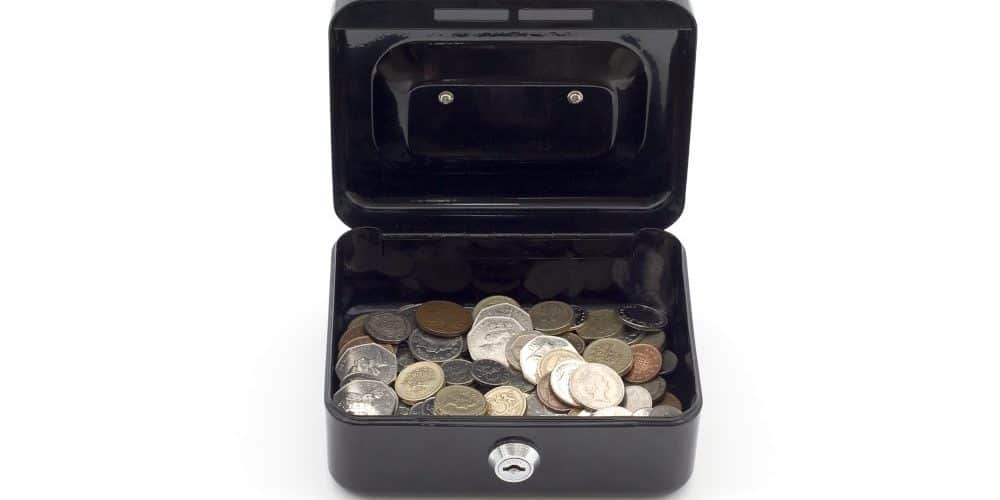Petty cash is a small amount of cash that is kept aside and made available to a business to make small, unplanned, and one-off purchases. It should be stored in a locked box or drawer, with a trusted employee charged with managing it as a custodian. Typically, petty cash is used to pay for minor business expenses such as stationery, postage, or local travel. It is a small fund, but essential for keeping on top of minor issues and purchases in the office and maintaining a convenient and comfortable working environment. Like all money in your business though, it is critical that it is managed properly to prevent waste or unnecessary expense.
What types of petty cash are there?
There are multiple potential uses for a petty cash fund depending on the sector you work in or the size of your business. It is a simple measure that can provide a convenient solution for a number of obstacles in your business.
General petty cash
This is simply an amount of money, often no greater than £200, that is set aside for small expenses. These expenses are typically outside of the business’ normal overheads and cover office supplies, minor employee reimbursements, or shared items in an office kitchen.
Emergency petty cash
This is set aside exclusively for emergencies. If there is an unexpected expense that arises without warning it is ideal to have money set aside to handle it. This can include sudden faults in shared office equipment or damage to premises.
Discretionary petty cash
Discretionary petty cash is set aside to be used only at the discretion of a manager or team leader. They can use this as they see fit to purchase items or services not budgeted for to keep the business running smoothly, promote a positive working environment, or maintain staff morale.
Managing your petty cash
One of the most popular ways to manage petty cash in an office or business environment is by using the imprest system. This requires you to set the petty cash at a fixed amount. Every time this fund is drawn from, make a note of it or voucher that is verified by whoever is in charge of the fund. At the end of an agreed amount of time, usually a month, the amount is replenished. By counting up the receipts with the remaining cash, you should reach the starting amount. Assuming everything adds up properly, the petty cash is then replenished from the business to its full total again. This system allows you to verify every expense made from petty cash and keep a limit on spending.
For all of your accountancy needs, Bells Accountants are here to help. We can provide for all of your business’ bookkeeping needs so you can focus on what matters. We offer a comprehensive service – from the big picture right down to little things, including providing resources such as our helpful petty cash sheet. Enquire today by calling 020 8850 0700 or emailing .

